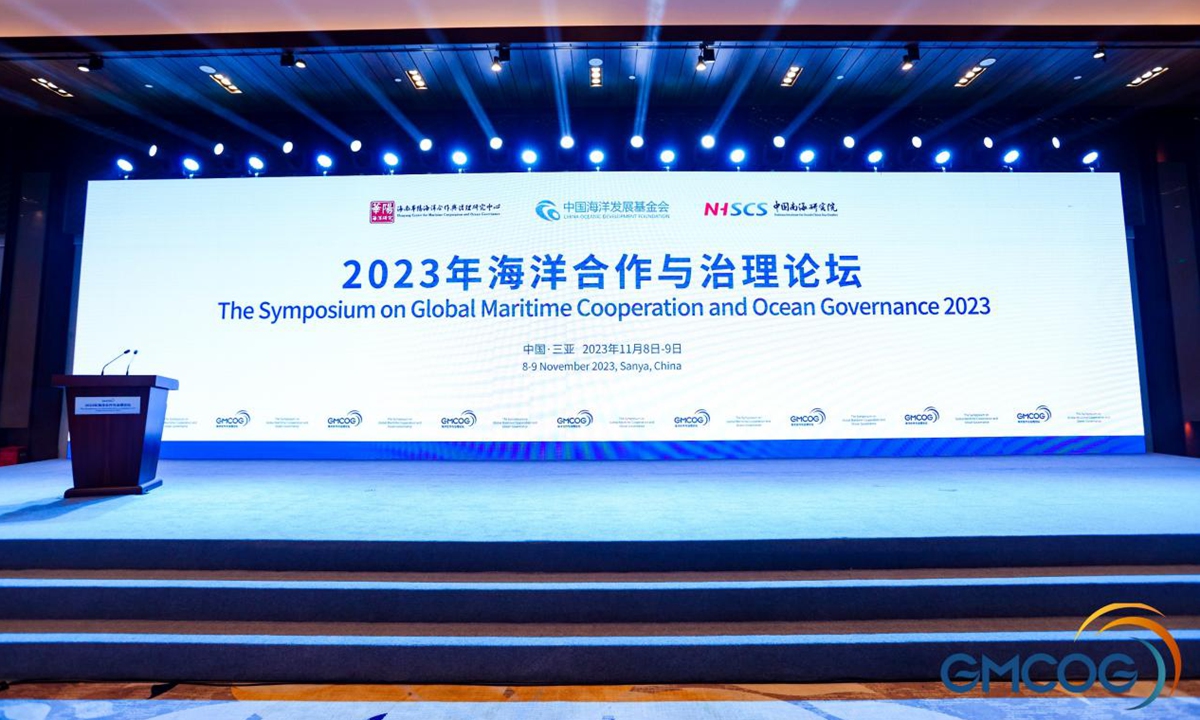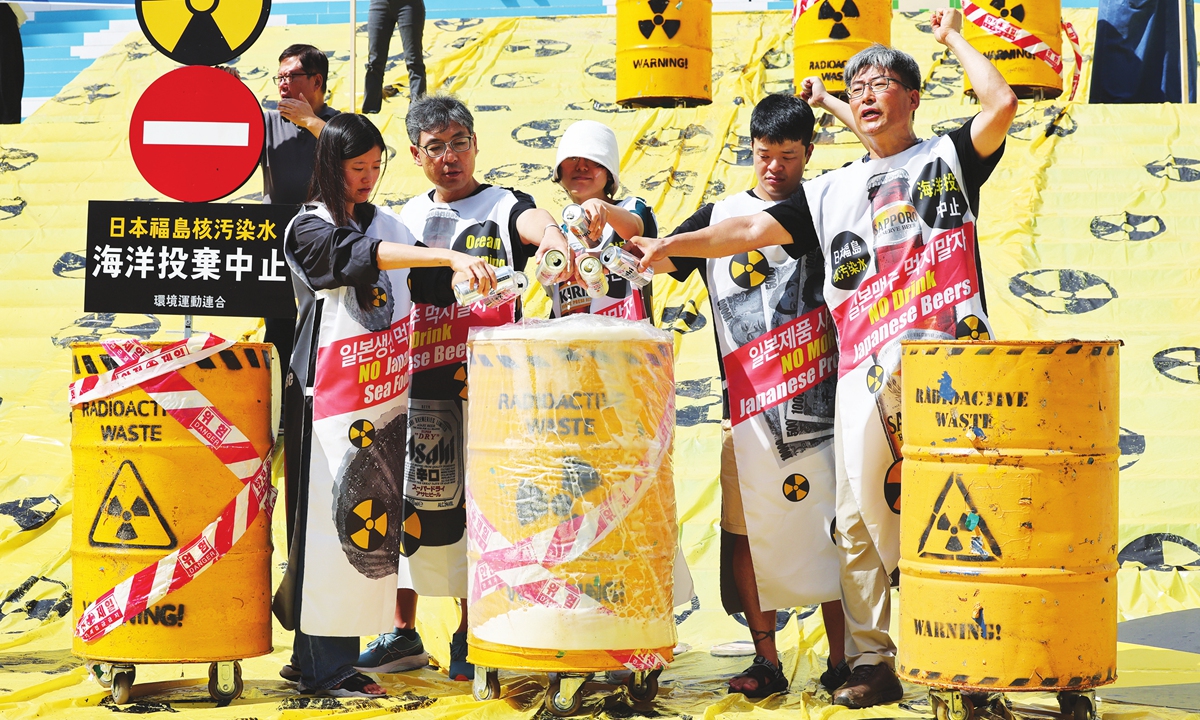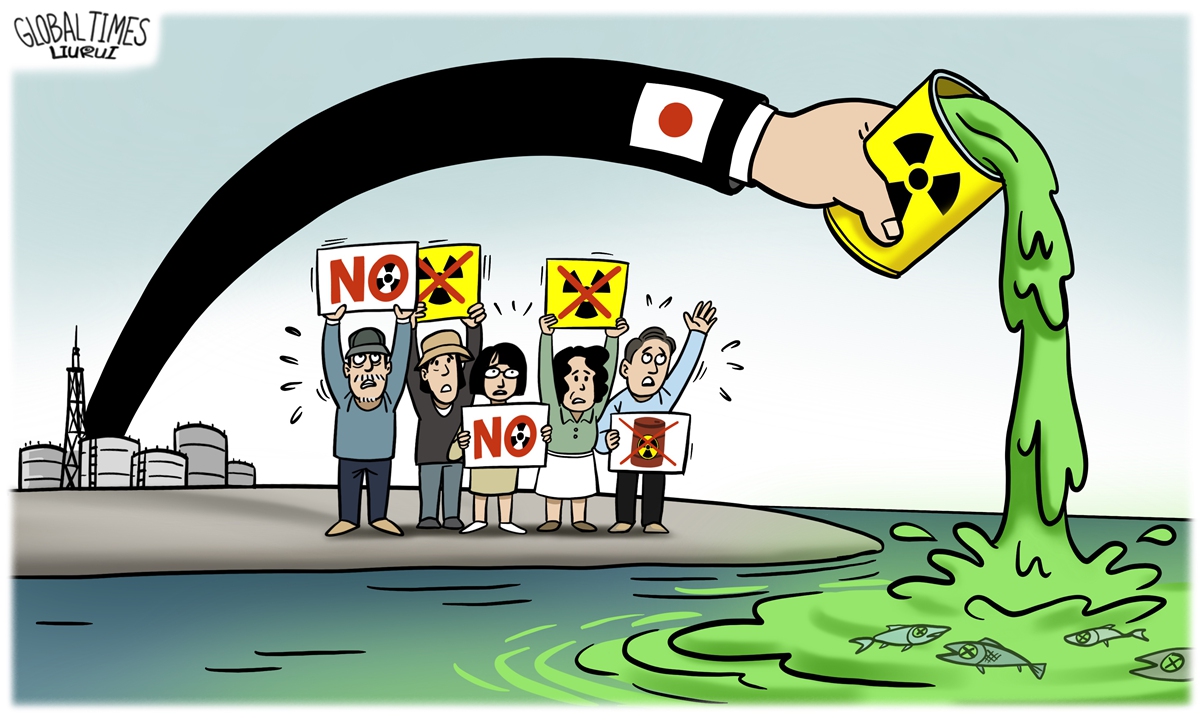Japan’s nuclear-contaminated wastewater dump approach is shaking and stirring the Pacific

Photo: GMCOG
Editor's Note:The third phase of Japan's dump plan kicked off on November 2 and is scheduled to continue through November 20, according to Japanese media outlets. Why has Japan chosen to set a bad example for global ocean governance? What has the dump plan brought to neighboring countries and regions so far? What is the best way forward for the world and the stakeholders? Experts at the Symposium on Global Maritime Cooperation and Ocean Governance 2023 held in Sanya, Hainan Province, recently shared their views on these issues. The Global Times selected the opinions of three experts.
Lee Seok-woo, professor of International Law, Inha University Law School, South Korea
What Japan said is that the level of contamination is lower than their neighboring states, including China and Korea. It is not sensible to compare relevant legal disposal of wastewater of other countries and intentional disposal of nuclear-contaminated water from Japan.
The practice of Japan in terms of the Fukushima nuclear plant is a very bad precedent for the future, what happened to Fukushima can happen anywhere in the world. We have to think about what is the best guideline for the future, so as to provide the good examples and make it the norm of the international community.
In Asia, there are many big ocean powers. The hope is that regional countries can show their good practices in terms of forming or supporting the preservation of marine environment for the future.
Tabitha Mallory, founder and CEO of the China Ocean Institute and affiliate professor of the University of Washington
It's unfortunate that the nuclear-contaminated wastewater is being released into the ocean. It's a question for everybody to grapple with - what would you do in that situation? And what can we do to make sure it doesn't happen again?
The US also has a terrible history of testing nuclear weapons in places like the Marshall Islands. I think the whole world can learn from these kinds of mistakes and look to more technologies that can actually benefit humanity.
One of the challenges is that this issue is so politicized. We need to realize what's really at the core, we're all still humans, and we have a shared humanity. We need to recognize that, there's kind of trickle-down effect, we can get into agreement or implement the commitments like that the countries around the world have made toward addressing climate change. Then follow through with those commitments and use technology the best we can, but it's going to take a while before we can actually stabilize the situation and start to roll it back.
Wang Kuan-hsiung, professor at National Taiwan Normal University
Japan's policy of dumping nuclear-contaminated wastewater is the largest nuclear incident since the Chernobyl disaster in 1986. This policy resulted in the release of radioactive materials into the environment, generating a huge amount of contaminated water. Japan plans to discharge over 1 million tons of the so-called treated contaminated water from Fukushima into the Pacific Ocean. This procedure will last almost three decades from August 24 this year.
Japan's discharging is directly related to the Sustainable Development Goal 14. SDG 14, a critical component of the United Nations sustainable development framework, recognizing the vital role that oceans and marine life play in maintaining the ecological balance of our planet. Under the SDG 14, there are several important items that we have to pay attention to regarding this issue.
First, we must look at the conservation of the marine ecosystem. How does Japan's discharging policy align with the objective of conserving maritime ecosystems? What are the potential consequences for marine biodiversity? Second, it is about the sustainable utilization of marine resources, this is one of the cornerstone topics of SDG 14. But to what extent does Japan's policy reflect the principle of sustainable utilization of marine resources? Third, it is about the cross-border impacts. The last one is about sustainable development versus environmental risk, balancing the sustainable development objectives with the potential environmental risk is a complex challenge.
Obviously, Japan has done something which is shaking and stirring the Pacific Ocean. Japan's discharging policy raised several issues: damaging the maritime environment, lacking reliable and scientific Information, ignoring stakeholders' interests, and bearing international responsibilities.
What should we do in the future? First, we should form a kind of international organization. So we can work together to harmonize our policy on the ocean governance for the Pacific Ocean. Second, we must conduct scientific research. I believe that it is vital that we set up monitoring and surveillance stations along the coast of the Pacific Ocean, and also involve the small islands in the South Pacific Ocean. I think through this kind of high politics and scientific research, we could have a better ocean governance in this region, especially related to Japan's dumping of nuclear-contaminated wastewater into the Pacific Ocean.


